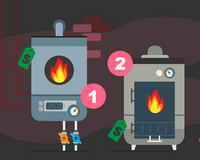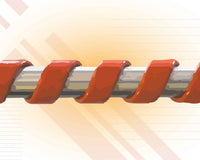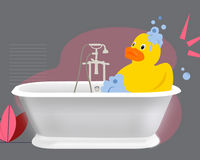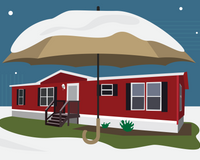Picture this. Spring has finally arrived, bringing with it the perfect outdoor weather for home renovations. Your taxes are done and you just got your tax return, meaning you have some extra money to put towards mobile home maintenance. But how do you use your money efficiently?
Average cost of owning a mobile home
While every home — and every home owner — is different, most mobile home owners will face similar expenses. These expenses can be split into two categories: fixed expenses and variable expenses.
Fixed expenses
Fixed expenses are the predictable expenses that come with owning a mobile home. While the amount can vary between payments, the payment itself is all but guaranteed. These include lot fees for those renting their mobile homes, utility hookup fees for those who do own their homes, and the utility fees themselves, such as water and gas.
Variable expenses
No matter how carefully you plan ahead, you’ll eventually be faced with an expense you didn’t expect. These include home repair fees, upgrade fees, and fees for new pets. Even if you can’t plan for the specifics, keeping an emergency home fund in your budget can help these expenses from leaving a hole in your wallet.
How much should I set aside for mobile home upkeep?
How much you pay each month for your mobile home depends on several factors, including home size, whether you own or rent the land you live on, your utility bills, and more. A good starting rule is to set aside roughly 1% of your home’s purchase price yearly for maintenance.
For example, a new single-wide mobile home costs about $76,000 on average. With the 1% rule, you’d want to set aside a minimum of $760 a year for repairs. Note that this is a starting rule, meaning it’s a baseline for you to add to based on your circumstances.
Prioritizing mobile home repairs
Now that you have your budget, you may wonder where to start with your mobile home repairs. At the end of the day, your circumstances are unique to you. If you’re experiencing an immediate home repair crisis, then don’t put it off because the issue is near the bottom of this list. However, if you’re experiencing several similarly severe issues and aren’t sure where to start, try this order:
The roof
Many mobile homes' roofs are flat, which accumulates snow, water, and debris faster than a slanted roof. Your home’s roof is the first line of defense against water damage, so if it’s leaking, fixing it should be your top priority.
The foundation
As important as the roof is, your mobile home’s foundation is just as important. An unsteady or damaged foundation can cause your house to sink or no longer be level. Make sure your home’s underbelly is protected from water as well — a rotting underbelly can cause your entire floor to collapse.
The skirting
Mobile home skirting helps to protect your foundation for moisture and your home from pests. Damaged skirting can compromise your home’s foundation, so it’s important to repair it when necessary.
The floor
Your flooring will often reflect greater issues with your house, such as a rotting foundation or leaking roof. Once you’ve located the source of the issue and fixed it, fixing your floors should be your next priority — unless you want to fall feet-first through your living room, of course.
The walls
Much like the roof, your home’s walls are a primary line of defense against the elements. Cracks and water damage should be fixed as soon as possible to keep moisture and pests out and to keep warm or cool air in.
The electricity and heating
Improper wiring or damaged heating systems contribute to a large number of mobile home fires. Make sure your wiring is up to code, especially in the kitchen and bathrooms.
The plumbing
Water damage is a mobile home’s worst enemy. Damaged pipes can lead to leaks and water damage that, if left unchecked, can compromise your mobile home’s structural integrity.
Practicing preventative maintenance
Even if you know what repairs to prioritize, it’s always better to prevent issues instead of fix them once they occur. There are several regular tasks you can perform in order to catch signs of damage in your mobile home.
Check for cracks
Your home shouldn’t have cracks in it. At least once a year, examine your home’s foundation for cracks and imbalances, as well as your skirting for cracks or holes that could allow moisture or pests access to your home. Twice a year, check your roof for cracks, missing shingles, or debris.
Keep the outside clean
Regularly cleaning your gutters is a necessary part of home ownership — clogged gutters can lead to leaks, water damage, and mildew, as well as attract pests. However, keeping your siding clean is just as important to your mobile home upkeep. Dirty siding is a perfect breeding ground for mildew and mold, so be sure to wash it yearly. If you’re worried about purchasing specialized soaps, don’t be: most vinyl siding can be cleaned with water and dish detergent.
Check your windows and vents
Improper home caulking can allow air to escape your house, increasing your heating bills in winter and your cooling bills in summer. Check the caulking around your windows, ducts, and vents, as extreme temperatures can lead to shrinking, cracking, and warping.
Clean your HVAC and heating systems
When dust clogs your HVAC and heating systems, it can decrease their effectiveness and aggravate asthma and allergies. Cleaning your air filters twice a year and having the ducts vacuumed once a year will keep them fully functional and keep your home interior breathable.
Making mobile homes whole
Mobile homes may be cheaper than traditional houses, but that doesn’t mean they don’t require maintenance. If your mobile home is in need of repairs or renovations, try Star Mobile Home Supplies. Not only have we been selling quality mobile home parts for 31 years, our team is fully qualified to answer your questions and deliver the parts you need.






